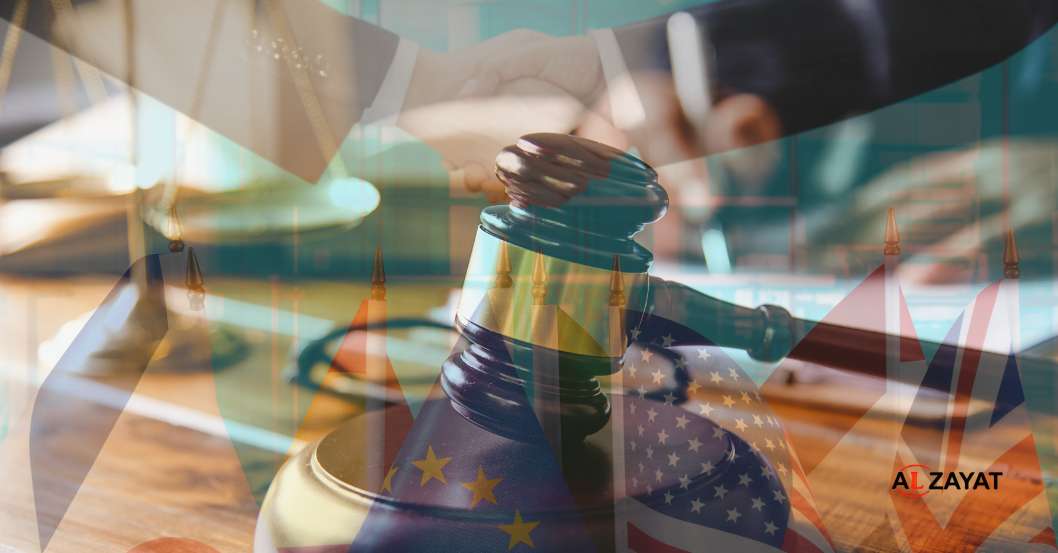Uniform enforcement of foreign judgments act
A court order or arbitral award issued in one country is not automatically enforceable in another. This fundamental principle of territorial jurisdiction means that a successful ruling in a foreign court is only the first step. Consequently, a distinct legal process is required to make that judgment legally effective in Egypt. While some jurisdictions, like many U.S. states, have adopted a “Uniform Enforcement of Foreign Judgments Act,” the process in Egypt operates under a distinct framework rooted in its own legal code and the crucial **principle of reciprocity**.
A Comprehensive Guide to the Enforcement of Foreign Judgments in Egypt
At Alzayat Law Firm, we specialize in bridging this jurisdictional gap. Our team ensures that foreign court orders and arbitral awards are recognized and enforced in Egypt through a meticulous legal process, ensuring our clients’ rights are never obstructed by borders.
The Cornerstone: Understanding the Principle of Reciprocity
The entire system for the enforcement of foreign judgments in Egypt hinges on reciprocity. In simple terms, Egyptian courts will enforce a judgment from a foreign country only if the courts of that foreign country would enforce an equivalent Egyptian judgment under similar circumstances. This principle manifests in several ways:
- Legislative Reciprocity: This exists when the laws of the foreign country explicitly include provisions for enforcing Egyptian judgments.
- Diplomatic Reciprocity: This is established through international treaties or conventions between Egypt and another state, such as the 2019 HCCH Judgments Convention, which aims to streamline this process globally.
- Practical Reciprocity: In the absence of a formal treaty or law, Egyptian courts will examine the actual practice of the foreign courts. If they have a history of enforcing Egyptian judgments, the principle is considered met.
The Legal Framework: Egypt’s Code of Civil and Commercial Procedure
The enforcement process is governed by Articles 296 through 301 of the Egyptian Code of Civil and Commercial Procedure. These articles collectively establish the conditions that a foreign judgment must meet to be granted an enforcement order (or *exequatur*) in Egypt.
According to Article 298, the key conditions are as follows:
- Jurisdiction: The foreign court that issued the judgment must have had proper jurisdiction over the case, and the Egyptian courts must not have had exclusive jurisdiction.
- Due Process: All parties in the original case must have been properly summoned to appear and given a fair opportunity to be represented.
- Finality: The judgment must be final and conclusive according to the laws of the country in which it was issued. It cannot be subject to further appeal.
- No Conflict: The foreign judgment must not conflict with a prior judgment issued by an Egyptian court, nor can it contain anything that violates public order or morals in Egypt.

Egyptian law sets specific, mandatory conditions for recognizing foreign court rulings.
Special Considerations for Foreign Arbitral Awards
Article 299 extends these principles to arbitral awards issued in a foreign country. However, the enforcement of foreign arbitral awards is also heavily influenced by international conventions. As a signatory to the 1958 New York Convention on the Recognition and Enforcement of Foreign Arbitral Awards, Egypt is part of a framework that often makes enforcing arbitral awards more streamlined than court judgments.
The award must, however, deal with a matter that is legally capable of being subjected to arbitration under Egyptian law.
The Alzayat Law Firm Advantage: Navigating Jurisdictional Complexities
Whether our client is a plaintiff seeking to enforce a foreign financial judgment or a defendant challenging its validity, our attorneys provide expert guidance through every step. We determine the most effective strategy, which may involve:
- Filing a new lawsuit in Egypt based on the strength of the foreign judgment.
- Registering the foreign judgment directly with the competent Egyptian court by submitting a certified copy and notifying the debtor.
Our profound understanding of both international treaties and the nuances of the Egyptian judicial system allows us to handle these matters with precision and authority, ensuring your legal position is robustly protected.
Frequently Asked Questions (FAQ)
- What is the first step to enforce a foreign judgment in Egypt?
- The first step is a legal assessment of the foreign judgment to ensure it meets all conditions under Egyptian law, especially reciprocity and finality. Following this, a case is filed with the competent court of first instance to request an enforcement order.
- Can a judgment for punitive damages be enforced in Egypt?
- This is highly unlikely. Judgments for punitive damages, which are meant to punish a party rather than compensate for actual loss, are often considered contrary to public order in Egypt. Therefore, enforcement of that portion of an award would likely be denied.
- How does this process apply to official bonds or authentic instruments?
- Article 300 outlines a similar process for official enforceable bonds issued abroad. An application is submitted to an enforcement judge, who verifies that the bond is valid and enforceable in its country of origin and does not violate public order in Egypt.
Secure Your Legal Rights Across Borders
Do not let jurisdictional boundaries obstruct the execution of your legal rights. Whether you need to enforce a favorable judgment in Egypt or defend against an unjust foreign claim, you require a legal partner with proven international expertise.

